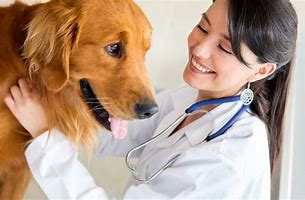Essential Questions To Ask When Choosing A New Vet Clinic
Are you thinking about getting a new pet for your family? Do you perhaps already have a pet and are either about to move or have just moved to a new area? Regardless of exactly why you need one, finding a new veterinarian can seem overwhelming at first. In a single area, there may be dozens of vet practices. So picking the right one can feel like trying to guess the winning lottery numbers. Fortunately, it doesn’t have to be that difficult. By having a list of questions ready to ask, you can determine whether or not a particular clinic is actually the right one for you and your pet. Some of the first questions you should be asking include:
- What type of animals do you see? If you have a pet that is not a cat or a dog, it’s essential to ask this question up front. In many instances, a vet clinic will refuse to take in so-called exotic animals that include rabbits, guinea pigs, birds, lizards, and so on. Even if you have an ordinary cat or dog, some clinics will specialize in one or the other. It won’t do anyone any good if you take your pet to a clinic and it turns out that it is an animal that they are unable to treat.
- What services do you provide? In some instances, a vet clinic may only do spays/neuters and vaccinations. If you need anything else, you’d have to find another clinic that provides more services. If all you need is a spay/neuter or vaccinations right now, that’s fine. But you should also find a clinic that can see your pet if it’s actually sick and in need of some kind of medical assistance. This way, you won’t have to spend more time searching when your pet needs to see a veterinarian immediately.
- Do you have any sort of payment plans? Depending on what services are provided, a vet clinic may only take payment up front for services rendered. You may be able to put the treatment on a credit card, but there are many people who can’t or who don’t want to get a credit card for any reason. For these people, some clinics will allow you to make payments over a number of months. They’ll generally expect you to pay something now as a down payment with the rest due depending on whatever terms the clinic has for owners. Not all clinics do this, and some that do don’t advertise so the best way to find out whether or not this is possible is to ask.

Questions You Need To Ask Your Vet
It can be a bit intimidating when going to the vet with your beloved pet. They are the expert, so how do you know what to ask or what to expect from them in return?
When it comes down to it, they are animal lovers just like you. The care about your pet and will want to provide you with the best resources for their health. Below are some of the most important questions and topics you should broach with your vet.
What services does the practice provide?
This is an important concept to go over when visiting a new vet practice. You need to make sure that the practice will be able to cater to your specific needs and provide the best care for your fur baby. Most practices will offer tours of the practice so you can see what goes on behind the scenes.
They will let you know the extent of the surgeries they will be able to provide and when it would be necessary to seek an outside specialist.
What do you do in case of an emergency with your pet?
Most practices are not open 24-hours, seven days a week. So what do you do if an injury or illness springs up on a Sunday night? Your vet should be able to give you a list of recommended emergency animal clinics in the area. If an emergency does occur and you need to seek outside treatment. It is important to keep your primary vet updated on the situation. They may be able to transfer your pet back into their care once normal business hours resume.
What policies and procedures are upheld by the clinic?
It is important to know all the policies and procedures that a clinic enforces. This helps to ensure that there are no surprises. Almost always, payment is due at the time of service. The clinic staff should review this with you on your first visit and should be able to provide an estimate of services before they are provided if special treatment is required.
How much should your pet weigh?
Healthy weight is just as important for pets as it is for us. So many pet owners are in the habit of rewarding their pets treats throughout the day and overfeeding them. Being overweight can greatly effect their health. Obesity can cause joint problems among other serious illnesses. You vet should be able to guide you on what your pet’s optimal weight is and the best way to reach it. This may require switching up foods and increasing their exercise. PetMD reviews the risks of obesity and what you can do to prevent it.
How important is dental care in pets?
Dental health is definitely something that needs to be more encouraged. Good dental health can help prevent other serious illnesses such as heart disease. Your vet will be able to provide you with a timeline on when your pet will need cleanings, what you can do at home for preventative care, and if any concerns are present. Some animals will be more susceptible to periodontal disease and may require extractions in the future. Preventative methods are a great way to help you avoid extravagant dental costs and will keep your pet’s breath nice and fresh! The AVMA provides more information on what to look for regarding dental problems and also provides a great video instructing on how to clean your pet’s teeth.

What testing is required for your pet?
At certain stages of your pets life they will need various testing beyond the general vaccines and parasite testing. It is important that your pet gets their yearly vaccines along with being tested for parasites such as heart worms, hookworms, roundworms, etc.
However, as your pet ages it becomes necessary for occasional blood tests just to make sure they are in good health and there are no underlying conditions to worry about. PetMD provides a great guide to further explain the necessity of blood testing.
How often should your pet be visiting the vet?
How frequently your pet should visit the vet will depend on their age and any conditions they may have. Yearly checkups are key for good health. If your pet is overweight, your vet may suggest coming in for weight checks.
There are other conditions that may require additional blood tests for maintenance of the condition. VCA is a great source and reviews the importance of wellness exams and what exactly your vet will be looking for and why.

Is pet insurance right for you?
There is no doubt that vet expenses can escalate quickly. Your vet should be able to offer you options for pet insurance and review the benefits with you.
This can help to make maintenance expenses more affordable and if unforeseen issues arise, insurance can help tremendously. PetMD provides the expanded benefits of investing in pet insurance.
Why are vaccines and parasite prevention important?
It is hard to have concern for things that you do not see. When it comes to parasite infestations and diseases it usually gets to the point of being a serious matter by the time an owner notices.
This is why getting annual tests, vaccines, and keeping up with parasite prevention is so important. It is not worth going through the stress and heartache later and it will keep your pet in optimal health.
Many of the vaccinations are for diseases that are contagious. American Humane reviews the essential and optional vaccines available for your pet and what they are preventing.
Does your pet need behavior training?
Often times when you adopt a pet, especially with a puppy, they have some bad habits they bring along with them. It may be necessary to bring in additional help in order to remedy these behavioral problems.
Your vet will be able to review with you what problems need corrected and should have recommendations on training and even tips. The ASPCA provides a great guide on picking out the right trainer for your pet’s needs.
Prepare Yourself Before Visiting Your Vet
Being a pet owner is a true commitment. Your vet is there to guide you through it and it is important that you build a bond with them and feel like you can trust them.
These vet questions provide a general guide on some of the topics you should review with your vet to get your pet to be at their best and live and long and healthy life. Never be afraid to keep asking questions.
They want you to be knowledgeable and confident with your pet’s health.